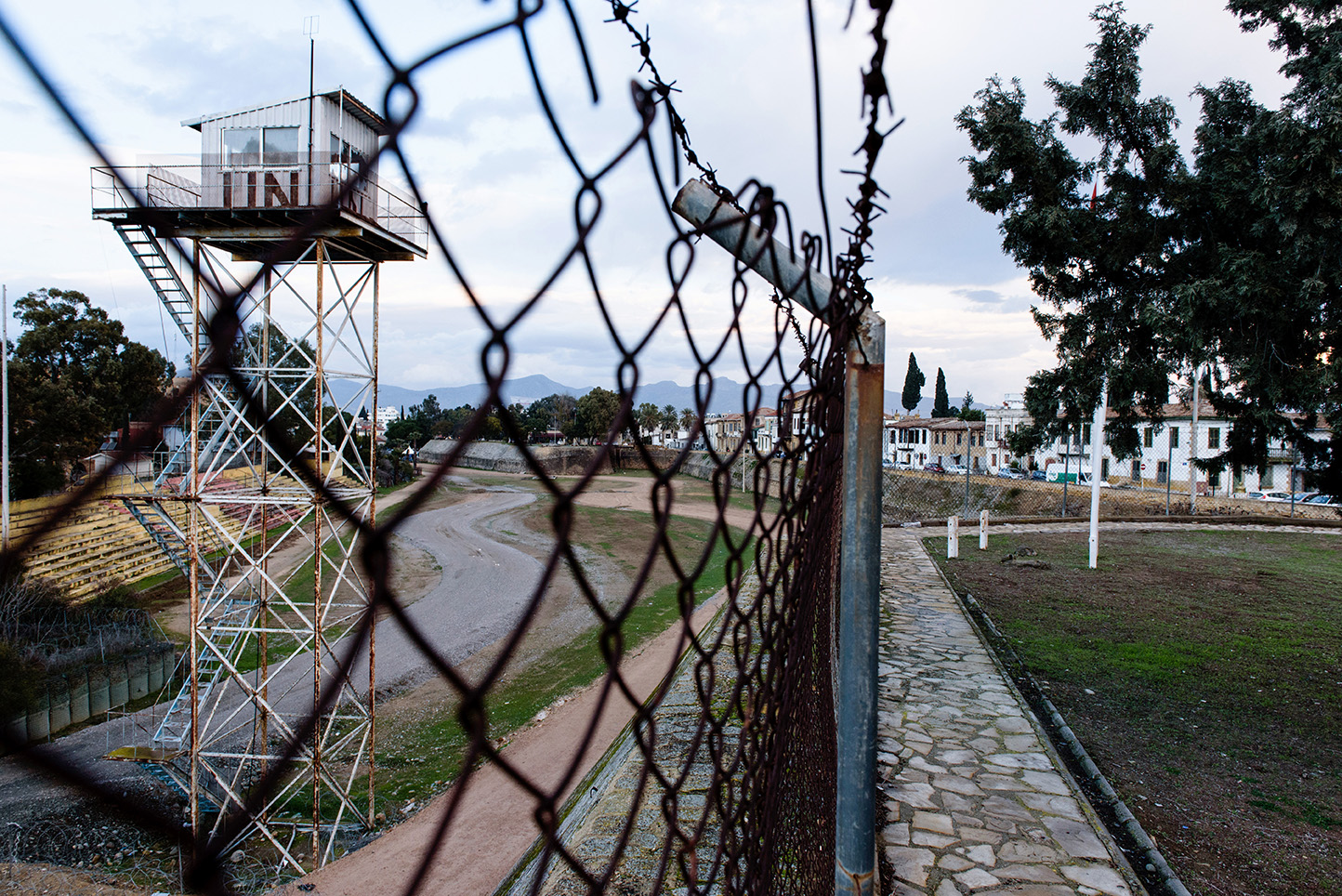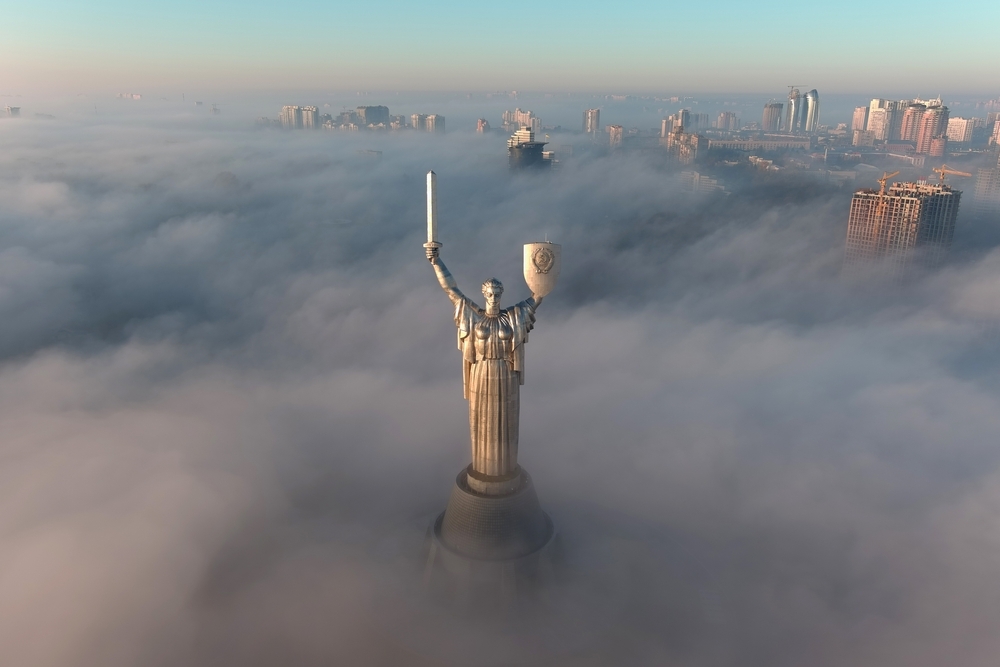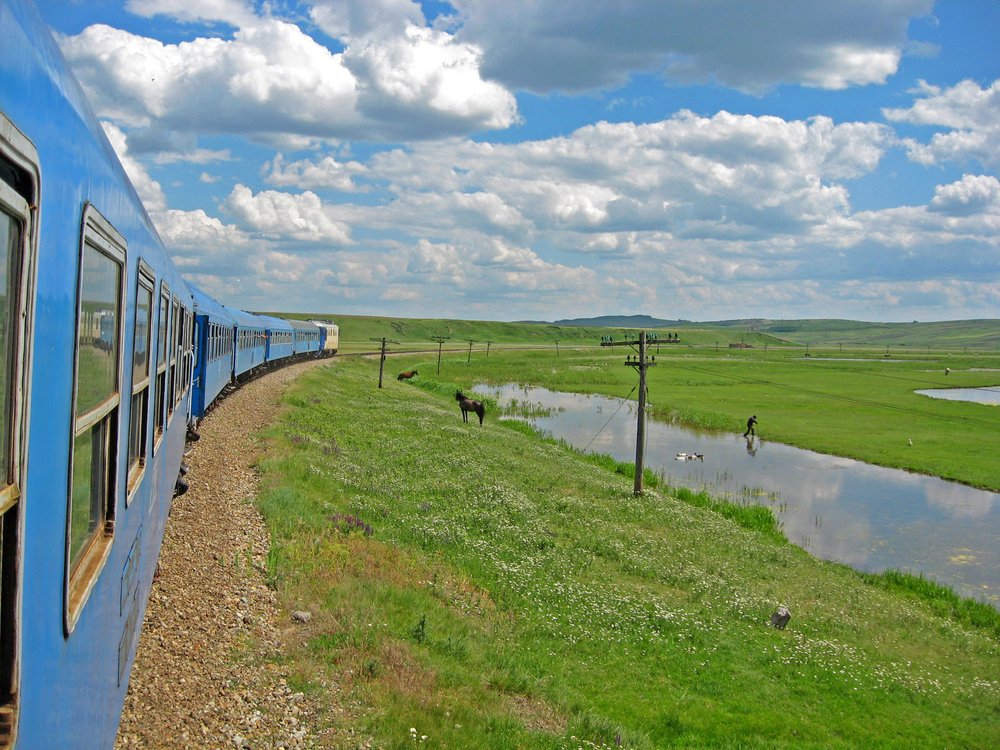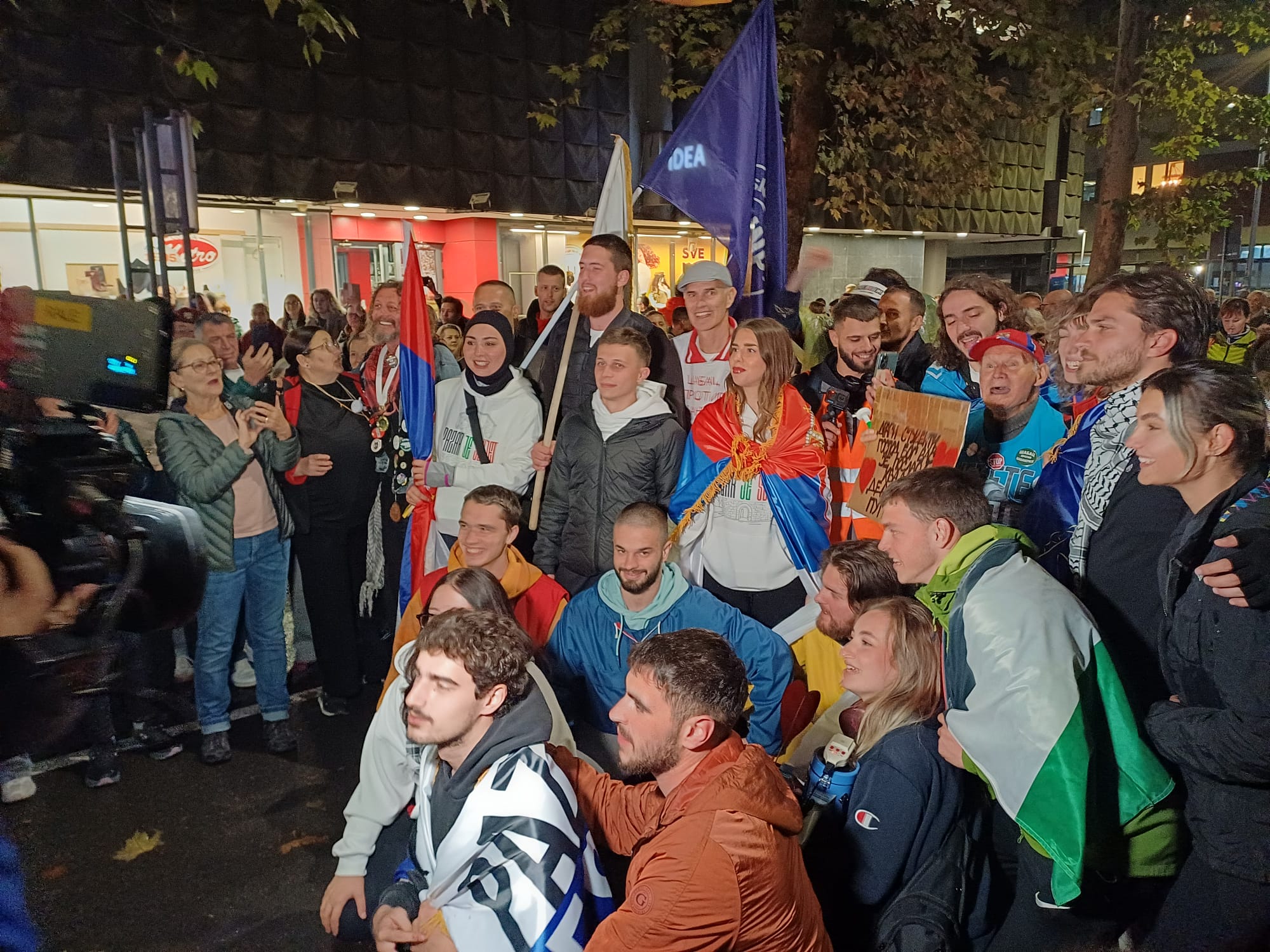Macedonia: un’altra stagione piena di agitazione
Verso la fine dell’estate la Macedonia si appresterà ad una nuova tornata elettorale. Come si stanno preparando i vari partiti politici? Ce ne offre un quadro d’insieme questo testo di Dejan Georgievski, nostro corrispondente da Skopje.
Usually, elections are an exciting issue, which takes place every four to six years depending, of course, on the country and its political system.
In most cases, they animate and agitate about half of the population (the actual percentage of the people voting being a function of the stability of the given county, i.e. the better off the country, less people are interested in participating). They tend to be increasingly exciting and more agitating as you travel to the East, towards the Terra Incognita of the so-called "countries in transition." As it is located in the East of Europe, Macedonia has good reasons to be quite fearful of its elections. Mind you, the least of its problems is maybe the Government it may elect.
Nevertheless, let’s begin where we should begin. That, of course, is at the very beginning.
Some rise, some fall, some stay in the middle
Ever since it lost the 1998 Elections, the SDSM opposition never stopped talking about the next election, particularly after the 1999 Presidential Elections, which it considered a great fraud that prevented their candidate from becoming President. They would have preferred early elections. This option was rejected when, in order to stop the campaign for early elections, the ruling VMRO-DPMNE used the same tactics that the SDSM used in 1996. At that time SDSM collected among the citizens the 150,000 signatures necessary to start a referendum procedure in the Parliament. However, according to the constitution, even such a successful petition, only implies that the Parliament is obliged to discuss the possibility to schedule a referendum. And in fact, this attempt to go to new elections with a referendum ended up in the Parliament with the Government voting against it.
The following period saw the gradual but steady fall of the ratings of the Government of the Prime Minister Georgievski, and the proportional rise of the popularity of the opposing coalition.Practically, all the polls after the year 2000, show that the SDSM’s rating is approximately double that of the VMRO-DPMNE. VMRO-DPMNE ratings dropped dramatically from an historic high of circa 30%, before the 1998 Elections, to an all-time low of 9.8% at the end of last year. SDSM’s ratings, on the other hand, did not rise dramatically (they have also fallen over the last year, to be exact), but it is at a steady 2:1 ratio compared to VMRO-DPMNE. (The last polls have the two parties at 20 to 9.5 percentage points, respectively.
VMRO-DPMNE have played a major role in what seems to be its almost certain electoral defeat next Autumn. Corruption affairs and scandals, huge levels of incompetence, of course, unpopular economic reforms – the phrase is, indeed, almost pleonastic, since we still await for a popular economic reform – contributed to the drop of the ratings. Moreover, last year, there was a Macedonia has gained independence.
DPA – to join or not to join Ahmeti?
As with all other issues, last year’s war proved to be the pivotal point. First, it interrupted another opposition campaign to oust the Government in Office, the so-called "New Parliamentary Majority" Plan (which envisioned a great shift of loyalties among the political parties in the Parliament, which would enable an establishment of a technical government, with the mandate to organize the early elections, set for the Fall of 2001). To this day, there is the ongoing speculation that last year’s crisis was "ordered" by the VMRO-DPMNE and delivered by the DPA, and only later went out of control. Other effects were among others, the great dissatisfaction with the current Government, the disillusionment of the electorate. In fact, in the latest polls 45 to 52% of the people stated they would never vote.
In this situation VMRO-DPMNE has got the chance to regain some rating points, by playing the nationalist-populist card. VMRO-DPMNE presented itself as the defender of Macedonia and Macedonians from the Albanians. The crisis also helped the creation of the "Lions" para-police force – officially a special unit of the Ministry of the Interior – that, in the opinion of all commentators and analysts, will be used for voter intimidation and t[] during the elections. SDSM, on the other hand, was seen as too compromising and compliant with the international pressure as way to damage the position of its arch-rival, VMRO-DPMNE, as well as too light-handed towards the Albanians, which cost the party several percentage points in the opinion polls.
In the Albanian political block, the crisis produced a great mistrust and dissatisfaction with the ruling DPA, as well as the emergence of Ali Ahmeti and his Albanian Coordination Council as undisputed, until recently, political leaders of the Albanians in Macedonia. The infighting that erupted in the Albanian political block over the past several weeks, however, shows that DPA does not intend to accept such a political configuration, while PDP and the relatively new National Democratic Party – NDP, also called "the DPA bashers" – back Ahmeti.
The war in Macedonia ended, as we all know, with the Ohrid Framework Agreement. Among other things, the Agreement stated that elections will be held "as early as possible." This was followed by a long "game of nerves".
Albanian political parties refused to even think about the issue until the Parliament would adopt all the main points of the Framework Agreement which will surely bring about changes in the political system.
The eventual adoption of those major changes – among which the Amnesty Law was the most crucial – marked the beginning of long negotiations, which involved all political parties, including the representatives of the international community, most notably the EU Special Envoy to Macedonia Alain Le Roi.
SDSM insisted on an early date, since the polls clearly indicated a great advantage over their VMRO-DPMNE rivals. VMRO-DPMNE, on the other hand, would like to postpone it indefinitely. Possible dates fluctuated from May to August… all mentioned in connection to the elections. However, the constant instability in the crisis regions, the Amnesty Law which was to be adopted, some good maneuvering by VMRO-DPMNE (helped greatly by the speaker of the Parliament Stojan Andov), finally made it September.
For quite a long time, Andov refused to set a date. As Ivica Bocevski from the Center for Political Education and Solidary told me in a conversation on the issue of elections "he does not actually have many options. Realistically speaking, he has to announce the elections 60 days before November 20, or either the Parliament will have to be suspended by default and elections will be set for no later than November 20." There is, however, the possibility of postponing the Elections indefinitely, in case a state of war (or other emergency) is declared, which would make elections impossible. Bocevski does not think they would dare to do something as drastic as that, but as he says "… one should never dismiss even the most outrageous theories here."
Once again, it was the international community that solved the problem by cutting the proverbial Gordian Knot. Kosovo Election and two elections on the same day would be absolutely out of question. The whole saga was decided last week, when Andov proposed September 15 as the election date.
New people needed, pay is excellent
In terms of where the campaign might go, nothing is certain. Bocevski says that in his opinion two things are certain. First is that VMRO-DPMNE will have a double-sided campaign, with Prime Minister Georgievski and Ljube Boskovski playing the "good cop – bad cop" routine between themselves. Georgievski will present himself as the pro-European, if slightly conservative politician, while Boshkovski will be there to attract the nationalist vote (looking at the recent trends in European elections, that might just be the winning ticket). His advise to the SDSM, on the other hand, would be "to run an exclusively moral campaign, attacking the corruption and the immorality of the VMRO-DPMNE" – a while ago, Bocevski was closely associated to SDSM. His other advise to his former party would be to give prominence to certain people pushed to the sidelines inside the party. "The latest polls show," said Bocevski, "that the former Minister of Foreign Affairs Ilinka Mitreva and Parliamentary Leader Nikola Popovski lead all popularity and confidence ratings lists, well ahead of Branko Crvenkovski and the people around him." He says that in VMRO-DPMNE Georgievski also follows Ljube Boshkovski, who is surprisingly second according to all popularity polls, who himself comes after the former President Kiro Gligorov, who is the greatest surprise of all, since he is trying to distance himself as much from the current political scene as possible.
The Albanian political parties, on the other hand, have a somewhat different problem. According to an Albanian journalist (he requested anonymity) working in Albanian print media, "… they don’t know what to do with Ali Ahmeti." There is no reason to doubt his judgment, especially having in mind the recent turmoil and infighting in the Albanian political block. It’s not clear whether DPA, for instance, which leadership has the most to lose, will do as expected and join the electoral coalition of all Albanian political parties united behind Ahmeti’s Coordination Council. For the moment, DPA is playing tough and serious in their intentions to run in the elections alone. That, according to the person we spoke to, is not going to take long, since "they are now playing for a bigger role in the Council, knowing that if things remain as they are at the moment, they will lose any political battle with Ahmeti."
As the Albanian political block is divided, SDPA will be able to play their "big guns" that is that they could run all their most respected politicians, while the biggest gun on the other side, Ahmeti himself, will in all likelihood not run, because that "might provoke the negative reaction with the Macedonians, who because of him might vote nationalist," as Ivica Bocevski believes.
The only remaining issue is the future of the smaller political parties, the self-proclaimed "third way." Having in mind their current ratings, they have very little chance of getting over any census higher than 2%, a provision that SDSM is willing to agree to, counting on their ability to attract most of those parties that will make it over the threshold. On the other hand, VMRO-DPMNE is against any census, counting that some smaller parties will manage to take away some of the votes that would be given to SDSM under the Single Transferable Vote System. The real problem, nevertheless, is that they do not have much to offer in terms of changes or new programs and platforms. They all seem to be doomed to play the second or third fiddle, as the old expression goes, that is having to make a coalition with the two big parties, which would make them lose their identity totally. VMRO-DPMNE, fearing that many of these parties might coalition with SDSM, if only to contribute to its defeat, now tries to put in a regulation that would make all the pre-election coalition deals illegal.
However it turns, the elections will always be exciting. Especially if, as both people I have talked to are right and if the current ruling parties (VMRO-DPMNE and DPA) are prepared to do anything in their power to win these elections, including use of force.
After all, the rumor around the town is that VMRO-DPMNE is already talking about offering from 500 to 1000 EUR per vote. May God help us!!!
See also:
Macedonia: Tigri e Leoni dall’Arcivescovo Stefan
Un profilo di Ali Ahmeti, leader politico dell’ex UCK macedone
Macedonia: amnistia o amnesia?
Macedonia: ministro gioca con un lanciagranate e sfiora la strage












